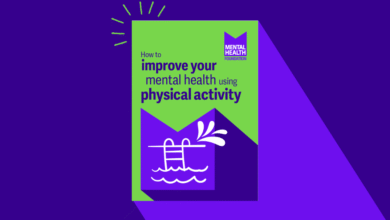How to Show More Compassion—and Why You Should

Compassion involves feeling another person’s pain and wanting to take steps to help relieve their suffering. The word compassion itself derives from Latin and means “to suffer together.”
It is related to other emotions, such as sympathy, empathy, and altruism, although the concepts have some key differences. Empathy refers more to the general ability to take another person’s perspective and feel the emotions of others. Compassion, on the other hand, is what happens when those feelings of empathy are accompanied by the desire to help.
Think of compassion as a revved-up, more active form of empathy. It’s why you might send your friend a “just checking in” text when you know they’ve had a rough day. When you notice your co-worker is extra quiet, compassion is why you offer a quick, “Hey, you seem a little off today. Is everything OK?”
The Value of Compassion
Compassion allows you to acknowledge someone’s struggles and respond with kindness, care, and support. It’s empathy in action. Showing compassion to yourself and others can strengthen relationships, increase happiness, and lower stress.
Sometimes, it just comes naturally, but there are also things you can do to strengthen it. Start by listening without judgment, offering to help, and practicing gratitude. Focus on being patient and showing forgiveness (for others *and* yourself) for mistakes. Think of compassion like a muscle: The more you practice, the stronger it will become.
Signs That You’re Feeling Compassion
How can you tell when what you are feeling is compassion (or empathy or sympathy or something else)? Some signs that what you are experiencing is compassion include:
- Feeling like you have a great deal in common with other people, even if you are very different in many ways.
- Being able to understand what other people are going through and feeling their pain.
- Being mindful of other people’s emotions, thoughts, and experiences.
- Taking action when you see that someone else is suffering.
- Having a high level of emotional intelligence so that you can understand, manage, and act on your own emotions as well as the emotions of others.
- Feeling gratitude when other people express compassion for your own hardships.
The key factor that distinguishes compassion from similar emotions is the desire to help. If you recognize their pain, that’s empathy. If understanding their pain causes you to take steps to relieve it, that’s compassion.
The Two Main Types of Compassion
Experts often distinguish between the two main forms of compassion, which vary depending on where these feelings are directed.
Your experience of compassion may be either directed toward other people, or it may be directed inwardly toward yourself.
Compassion for Others
It really does hurt to know that others are hurting, and sometimes, that hurt makes us want to help. When you experience compassion for other people, you not only feel their pain—you also want to find a way to relieve their suffering. These feelings compel you to take action to do what you can to make the situation better.
Self-Compassion
Self-compassion is all about giving yourself grace instead criticism. It involves being able to acknowledge your weaknesses or failures without being judgmental or critical.
Instead of berating yourself, self-compassion allows you to treat yourself with the same kindness you’d show to a friend who is struggling.
Rather than beating yourself up over past mistakes, you feel understanding, mindful, and accepting of yourself and your imperfections.
How to Flex Those Compassion Muscles
Even when you feel compassion, knowing how to best help or show your support is not always easy. You might feel awkward or uncomfortable or worry about making the situation worse. When emotions feel *heavy* and you aren’t quite sure how to help, there are several different steps you can take to show compassion to others.
- Speak with kindness
- Apologize when you’ve made a mistake
- Listen carefully and without judgment
- Be encouraging
- Offer to help someone with a task
- Be happy for someone else’s success
- Accept people for who they are
- Forgive people for making mistakes
- Be respectful
- Express gratitude and appreciation
- Be patient
When you practice compassion, you start by empathizing with another person’s situation. You look at what they are going through without judgment and imagine how you might feel in their situation.
Compassion and empathy share common elements, but compassion goes a step beyond. Rather than just imagining yourself in their shoes, compassion drives you to take action to help that person. Because you are able to feel those emotions so keenly—almost as if it is happening to you—there is a strong motivation to find a way to change the situation or ease the other person’s pain.
Why Compassion Can Make a Real Difference
Compassion can have a positive impact on your life, ranging from improving your relationships to boosting your overall happiness. Some of the positive effects of compassion:
Giving Feels Good
One of the reasons why compassion can be so effective is that both giving and receiving can improve your psychological well-being. Being the recipient of compassion can help you get the support you need to carry you through a difficult time. But giving compassion to others can be just as rewarding.
For example, researchers have found that giving money to others who need it actually produces greater happiness rewards than spending it on ourselves.
It Helps People Live Longer
Helping others doesn’t just feel good—it can also help you live longer. Engaging in activities such as volunteering to help those you feel compassion for can improve your longevity. Research has found that people who volunteer out of concern for others tend to live longer, healthier lives than those who do not.
Showing Compassion Leads to a Life of Purpose
Evidence indicates that the happiness that comes from living a life of purpose and meaning—one that is fueled by kindness and compassion—can contribute to better health. Researchers have found that people who experience what is known as eudaimonic happiness—or the kind of happiness that comes from living a meaningful life that involves helping others—experience lower levels of depression, stronger immunity, and less inflammation.
Compassion Improves Relationships
Compassion can also help you build the social support and connections that are important for mental well-being. It can also protect your interpersonal relationships. Research suggests that compassion is a key predictor of the success and satisfaction of relationships.
According to one study published in the journal Emotion, compassion is the single 👏 most 👏important 👏 predictor of a happy relationship.
Interestingly, the study found that while people tend to gain the greatest benefits when their partner notices their acts of kindness, they actually experience benefits whether their partner notices or not. What does that mean, exactly? It suggests that compassion is its own reward.
Recap
Compassion is good for both your physical and mental health. Not only that, it feels good to help others and can contribute to a greater sense of purpose and meaning in your life.
Simple Ways You Can Be More Compassionate
While some people tend to be more compassionate by nature, experts also suggest that there are steps you can take to cultivate a greater sense of compassion for both yourself and others:
Bring Your Attention to the Situation
The first component of compassion is to become more aware of what other people are experiencing. Imagine yourself in their shoes. Being able to see things from another person’s perspective can help you gain a sense of compassion for their situation. Practice putting yourself in someone else’s place and imagine how you might feel. Focus on feeling how they might be feeling.
Let Go of Judgment
Accepting people as they are and avoiding judgment is important. Focus on accepting people for who they are without criticizing or blaming the victim.
Practice Mindfulness
Mindfulness is a practice of focusing on the present, becoming more aware of your own thoughts, and observing these thoughts without judging them. Research suggests that mindfulness-based interventions can be effective for improving self-compassion.
Show a Little Love and Kindness (Through Meditation)
Loving-kindness meditation is a form of meditation, also known as compassion meditation, that involves meditating while directing kind, compassionate thoughts toward yourself or others. Research suggests that this form of meditation can help people improve their connection to others and boost well-being.
You can try it by:
- Find a comfortable place to sit and focus on your breathing.
- Direct kind, loving thoughts toward yourself (“May I be happy,” “May I be safe”) while holding an image of yourself in your mind.
- Direct kind and loving thoughts toward someone else.
- Next, imagine that love and kindness expanding to encompass the entire world.
Potential Pitfalls of Compassion
One potential pitfall of compassion is that constant exposure to the distress of others may contribute to what is known as compassion fatigue.
What Is Compassion Fatigue?
Compassion fatigue involves feelings of physical and emotional exhaustion as well as a mental withdrawal from traumatized individuals. It can reduce feelings of empathy and compassion for people who are in need of help.
People who work in helping or caregiving roles (such as nurses, doctors, or emergency care workers) often experience an extreme state of tension as well as a preoccupation with those they are helping. Because of this, helpers can experience symptoms of trauma themselves. The result? It can potentially dampen their feelings of compassion.
Combating compassion fatigue is particularly important in healthcare and other helping professions. Research suggests that interventions that involve mindfulness meditation and other mindfulness-based practices can help people in these roles experience greater compassion for others, improve positive feelings, and reduce distress.
While it’s good to have compassion for others, it’s also crucial that you take the time you need for self-care.
Takeaways
Compassion allows you to feel what others are feeling and motivates prosocial behaviors that can improve the well-being of others as well as improve your own physical and mental wellness. While some people experience compassion more often by nature, there are things that you can do to help improve your own ability to feel compassion for others.
Learning this ability takes some time and practice, but it’s worth it to keep working on flexing your compassion skills. Being open to feeling what others are feeling can help you create deeper, more meaningful connections. Acting on these feelings of compassion can benefit others, but as the research suggests, sometimes compassion is its own reward.
Source link




